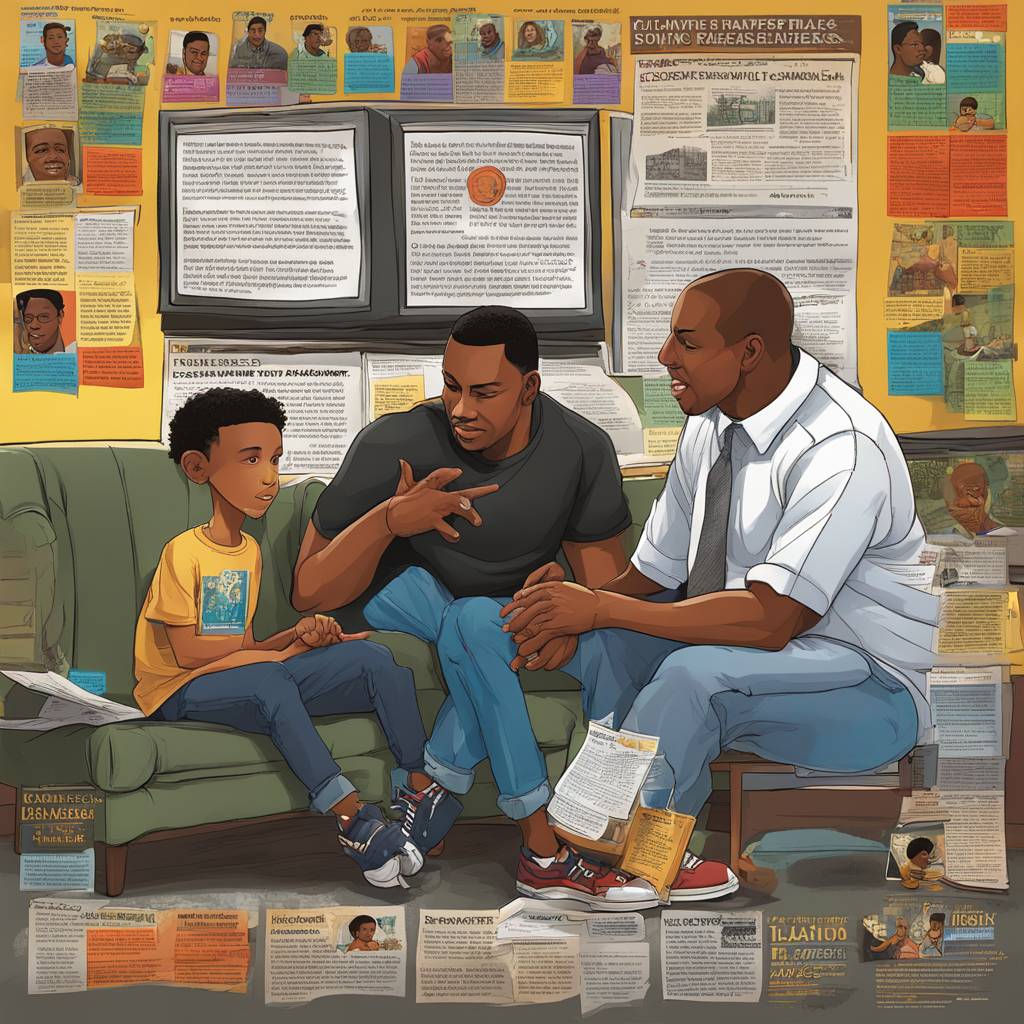A study published in the Annals of Family Medicine found that Latino and Black fathers often underestimate when their teenage sons become sexually active, leading to delayed education about safe sex practices. Researchers from the Johns Hopkins School of Nursing surveyed 191 Latino and Black teenagers, aged 15 to 19, and their fathers in the Mott Haven neighborhood of the South Bronx. They discovered that many fathers tend to underestimate their sons’ sexual readiness and therefore do not provide guidance on condom use in a timely manner. This discrepancy between fathers’ perceptions and their sons’ actual sexual activity underscores the importance of health care providers encouraging families to have open conversations about safe sex well before they believe their sons are ready to engage in sexual activity.
The study also highlighted a concerning trend in declining condom use among adolescents, despite a decrease in overall sexual activity among teens. Rates of sexually transmitted infections and unplanned pregnancies have increased among young men, particularly in Black and Latino communities, who are disproportionately affected by HIV. These communities face unique challenges in accessing healthcare after negative sexual health outcomes, underscoring the need for parental interventions. Research has shown that involving parents in their teenagers’ sexual education can lead to delayed sexual activity and increased practice of safe sex.
Vincent Guilamo-Ramos, the lead researcher of the study and executive director of the Institute for Policy Solutions at the nursing school, emphasized the importance of fathers in the sexual education of their adolescent sons. Many Black and Latino teenagers expressed a desire for their fathers to be more involved in discussions about sexual health, yet fathers often feel unsure about broaching these topics. Guilamo-Ramos stressed that fathers play a crucial role in shaping their children’s attitudes towards sex and relationships, beyond just providing financial support or discipline. He urged Latino and Black families to recognize the significance of fathers in the overall well-being of their children, including their sexual health.
Parents’ involvement in their teenagers’ sexual education is crucial in addressing sexual health inequities in Black and Latino communities. Research has shown that teens who receive guidance from their parents are more likely to wait to engage in sexual activity and to practice safe sex. Health care providers should encourage families to have these conversations early on and to provide accurate information about safe sex practices. By empowering fathers to take an active role in their sons’ sexual education, Black and Latino families can help reduce the rates of sexually transmitted infections and unplanned pregnancies among teenagers in their communities.
In conclusion, the study emphasizes the importance of parental involvement, particularly from fathers, in educating Black and Latino teenagers about safe sex practices. By addressing the gap between fathers’ perceptions of their sons’ sexual activity and the actual behaviors of their teenagers, families can work towards reducing the high rates of sexually transmitted infections and unplanned pregnancies in these communities. Fathers have a significant influence on their children’s attitudes towards sex and relationships, and their involvement in sexual education can have a positive impact on their teenagers’ behaviors. Encouraging fathers to have open and honest conversations with their sons about safe sex is crucial in promoting sexual health and well-being among Black and Latino adolescents.


